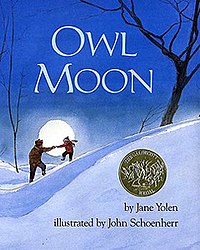Why, oh why do kids insist on having the same story read to them again and again? With a sigh, we pick up the book for the hundredth time and begin to read. "Don't we want to read something different tonight? How about this one?" But, of course, we cannot dissuade our little one from repeating the same beloved book. But all is not lost. There are several excellent reasons why this repetition is amazingly important, crucial even, for a child's cognitive development.
 Repeat to learn
Repeat to learnKids learn through repetition, so it’s not surprising that they tend to ask for the same books over and over — this is how their brains absorb the stories and language patterns within. In fact, a 2011 study of children’s language acquisition found that when kids were read the same book multiple times, they remembered and retained the meaning of a new word better than kids who read different books (all containing the same word). It’s likely that hearing the phrasing and structure of a story many times over helps children grasp and hold on to new vocabulary. It’s also exciting for your child to learn a book so well that she knows what’s coming and can anticipate or even repeat and chime in with the words — the same way we all love being able to know what’s coming and sing the words to a favorite song.
Repeat for comfort
Little children are creatures of habit. It’s a principle that holds true not just for reading, but for other aspects of life too. The same fishy cup for lunch, the same walking route to the park … kids look for patterns and regularity to help them figure out how the world works, and they find comfort and security in rituals. This is especially important for younger kids, who are little scientists and feel reassured when they can predict what’s ahead.

Repeat, and expand
Since reading the same books incessantly is developmentally appropriate (just bring the topic up with other parents of young kids for verification), it’s a good idea to follow your child’s lead. It's especially important when a particular book has become part of a sleep routine or some other transition point through the day.
 But that doesn’t mean you can’t open up other possibilities as well. For example, before bed, set up the agreement that you read three books: two that your child chooses and one that you choose. This way you can put a book in the rotation that you enjoy reading. Don’t let this activity become mind-numbing for you. The more fun you have reading to your child, the more likely you are to do it frequently and with enthusiasm.
But that doesn’t mean you can’t open up other possibilities as well. For example, before bed, set up the agreement that you read three books: two that your child chooses and one that you choose. This way you can put a book in the rotation that you enjoy reading. Don’t let this activity become mind-numbing for you. The more fun you have reading to your child, the more likely you are to do it frequently and with enthusiasm.Make a plan with your child that respects her need for repeating tales, but also ignites up your own excitement (since she’s cueing off of you as well) — that way you can both look forward to snuggling in and cracking a book together.
Happy reading with your child or grandchild--over and over and over...
Heather Turgeon authors the weekly Science of Kids column for Babble and her health and science writing has appeared in places like Salon, The Huffington Post, and The Daily Beast.
No comments:
Post a Comment